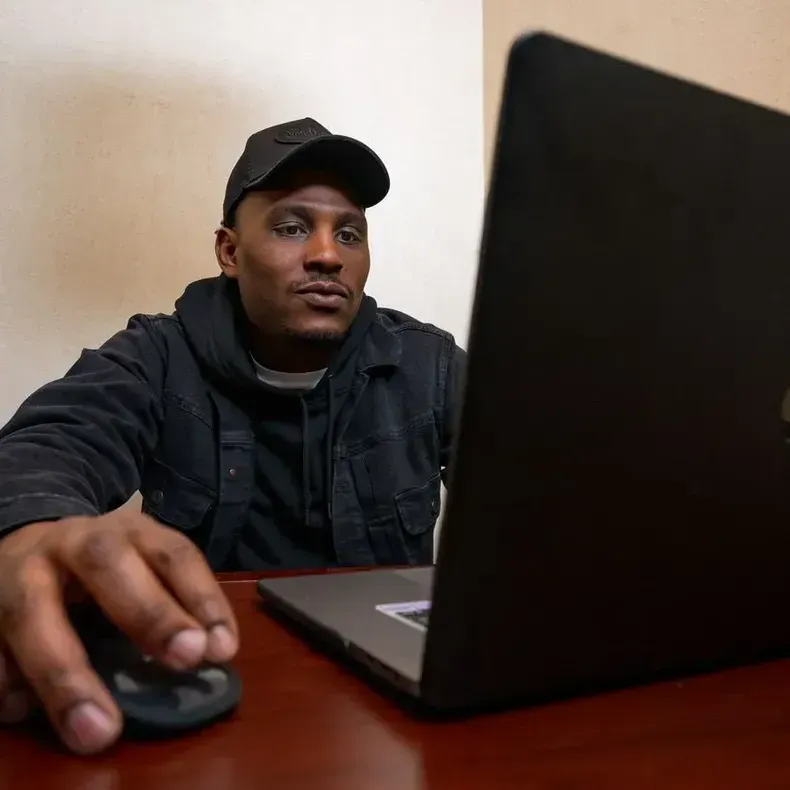Bitcoin Whales, RFK Jr., and Crypto Chaos: What We Learned at Bitcoin 2024

Bitcoin Whales, RFK Jr., and Crypto Chaos: What We Learned at Bitcoin 2024
What makes someone a Bitcoin whale? We took that question to the Bitcoin 2024 conference, expecting a simple answer. Instead, we got a wild mix of opinions, from "1 Bitcoin is enough" to "you need at least 1,000"—and everything in between.
Beyond the whale debate, the conference was a crash course in the culture, politics, and future of crypto. We met die-hard RFK Jr. supporters, stumbled into conspiracy theories about the NSA, and saw firsthand how Bitcoin is more than just a digital asset—it’s a movement.
Here’s what we discovered.
Step 1: The Bitcoin Whale Mystery
Ask ten Bitcoin investors what qualifies someone as a whale, and you’ll get ten different answers. Some of the most popular takes we heard:
- 1 BTC is enough – “If you own a full Bitcoin, you’re a whale.”
- 10 BTC gets you in the club – “Double digits? You’re definitely a whale.”
- 100 BTC makes you a ‘crab’ – A middle-tier investor with serious holdings.
- 500 BTC earns you ‘shark’ status – One step below a whale.
- 1,000 BTC is the true whale threshold – The most widely accepted definition.
- 6.15 BTC? Good enough – Yes, someone at the conference genuinely believed this.
The takeaway? There’s no universal definition but most agree that 1,000 BTC is where whale status begins.
Step 2: RFK Jr. and the Crypto Crowd
The conference wasn’t just about market trends. Politics took center stage, especially when it came to Robert F. Kennedy Jr.
Many in the crypto world see him as a champion of financial freedom. His opposition to a central bank digital currency (CBDC) resonated with Bitcoin advocates who fear government-controlled digital money. Supporters also praised his push for transparency in government spending and his stance against traditional banking systems.
Even those who weren’t fully on board with his policies acknowledged that RFK Jr. is one of the few political figures engaging with the crypto community.
Step 3: The NSA, Bitcoin, and the Conspiracy Rabbit Hole
What if Bitcoin wasn’t created by Satoshi Nakamoto, but by… the NSA?
That was a real theory floating around the conference. Some attendees speculated that the U.S. government had a hand in Bitcoin’s creation, while others believed it was just another fear-based distraction.
One person we interviewed made a cryptic statement about the military and unaccounted funds, suggesting that Bitcoin’s origins might be more complex than we think. Whether these theories hold any truth or not, they highlight the deep mistrust some in the crypto space have for traditional institutions.
Step 4: Bitcoin’s Growing Social and Business Scene
Beyond investing, Bitcoin is fueling communities, businesses, and new opportunities. Some of the standout trends we saw:
- Bitcoin education clubs – Groups dedicated to teaching people about crypto and financial freedom
- Startup founders building around Bitcoin – Like "Cohort," a company helping funded startup founders buy real estate together
- Networking is everything – The most successful Bitcoin entrepreneurs weren’t just investing, they were building connections
Bitcoin is no longer just a financial asset. It’s a full-blown movement with its own culture and economy.
Step 5: The Future of Bitcoin
If there was one thing everyone agreed on, it was that Bitcoin’s future is still uncertain.
Some major concerns that kept coming up included government regulation, the increasing involvement of traditional financial institutions, and the ongoing volatility of the market. Some believe that Bitcoin will continue to disrupt the global financial system, while others worry that corporate and government influence will dilute its original purpose.
Despite the risks, one thing was clear. Bitcoin believers aren’t going anywhere. Whether it’s crabs, sharks, whales, or RFK Jr. fans, the community is here to stay.
Final Thoughts
The definition of a Bitcoin whale remains a topic of debate, with estimates ranging from 6.15 BTC to 1,000 BTC. This uncertainty reflects the decentralized and ever-evolving nature of the crypto space, where terminology is shaped by the community rather than any governing body.
Beyond whale classifications, Bitcoin's influence extends far beyond finance. Political discussions, particularly around RFK Jr. and digital currencies, highlight the growing connection between cryptocurrency and government policies. Meanwhile, Bitcoin clubs, startups, and networking events showcase its role in fostering innovation and community.
Whether viewed as a financial revolution, an investment opportunity, or a technological experiment, Bitcoin continues to challenge traditional systems and redefine the future of money.








